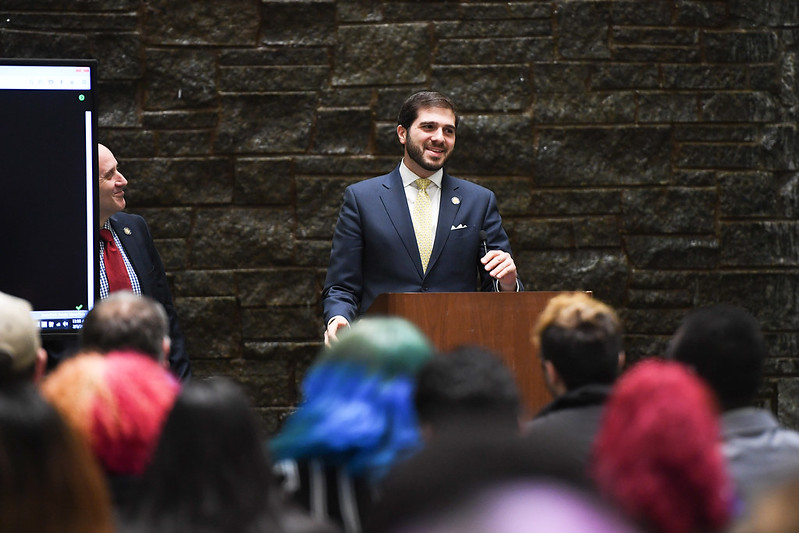
State Senator Andrew Gounardes (photo: NY Senate Media Services)
May 25, 2022 - Max Politics Podcast: Senator Andrew Gounardes on End of Legislative Session Priorities & More
State Senator Andrew Gounardes, a Brooklyn Democrat, joined the show to discuss major issues being negotiated as the end of this year's state legislative session nears. Gounardes discussed speed camera legislation, mayoral control of New York City schools, the 421-a real estate/affordable housing tax program, Mayor Adams' relationship with the State Legislature, and more.
Listen to the
...